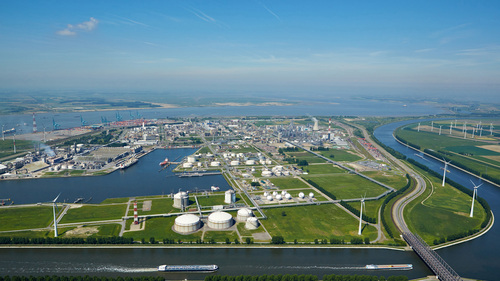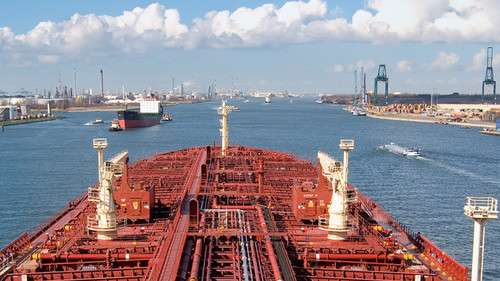BASF builds new plant for alkylethanolamines at Antwerp site
BASF builds a new world-scale production plant for alkylethanolamines at the Verbund site in Antwerp, Belgium. After the planned start-up in 2024, the company will increase the global annual production capacity of its alkylethanolamines portfolio containing, amongst others, dimethylethanolamines (DMEOA) and methyldiethanolamines (MDEOA) by nearly 30 percent to more than 140,000 metric tons per year. With a high degree of local backward integration, BASF ensures a reliable and sustainable production of alkylethanolamines. With production facilities for this portfolio at its sites in Ludwigshafen, Germany; Antwerp, Belgium; Geismar, Louisiana and Nanjing, China, BASF is one of the world’s leading producers of alkylethanolamines.
“We see a continuing, growing demand for alkylethanolamines in a broad range of industries such as water treatment, detergents and gas treatment over the next years. The investment in Antwerp will have a positive effect on the available capacity for alkylalkanolamines in BASF’s amines Verbund, therefore supporting our continued ambition to provide products for our customers’ growth,” said Dr. Frank Stein, Regional Business Unit Europe of BASF’s Intermediates division, adding: “This is our clear commitment as one of the globally leading amines producers.”
The versatile alkylethanolamines are mainly used as precursors for flocculants applied in water treatment and in the coatings industry where they act as binders between pigments and resins. Other applications include gas treatment, fabric softeners, in additives for metalworking fluids and polyurethanes.
With about 300 different amines, BASF has the world’s most diverse portfolio of this type of chemical intermediates. Along with alkyl-, alkanol- and alkoxyalkylamines, the company offers heterocyclic and aromatic as well as specialty amines. The range is completed by an expanding portfolio of chiral amines of high optical and chemical purity. The versatile products are used mainly to manufacture process chemicals, pharmaceuticals and crop protection products, as well as cosmetic products and detergents. They also serve to produce coatings, special plastics, composites and special fibers.
Categories
Investments
Latest news
Hycamite’s technology to decarbonize shipping awarded AiP by industry leader DNV
Kokkola Industrial Park →Hycamite’s proprietary Thermo-Catalytic Decomposition (TCD) technology offers a new approach to producing clean hydrogen by breaking down methane, the primary component of liquefied natural gas (LN...
Clariant catalysts will power the Ecoplanta: Europe's first waste-to-methanol plant
Chemmed Cluster Tarragona →Repsol is building Europe’s first plant to produce renewable methanol from urban waste The facility will use Enerkem gasification technology to produce 240 KTA of methanol Clariant will supply cata...
Lilly plans to build a new $3 billion facility to boost oral medicine manufacturing capacity in Europe for patients worldwide
Netherlands site will bring 500 manufacturing and 1,500 construction jobs while further strengthening Lilly's global supply chain
Ports of Duisburg and Rotterdam advance energy transition together
Port of Rotterdam →With this LoI, the two major European logistics hubs reinforce their goal of jointly developing sustainable transport corridors via waterways as well as future-oriented initiatives for the energy t...


